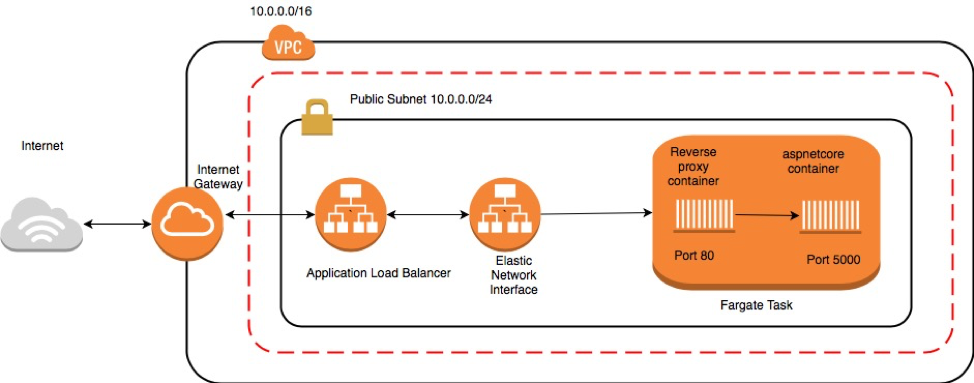AWS Compute Blog
Category: AWS Fargate
Using AWS App Mesh with Fargate
This post is contributed by Tony Pujals | Senior Developer Advocate, AWS AWS App Mesh is a service mesh, which provides a framework to control and monitor services spanning multiple AWS compute environments. My previous post provided a walkthrough to get you started. In it, I showed deploying a simple microservice application to Amazon ECS […]
Access Private applications on AWS Fargate using Amazon API Gateway PrivateLink
This post is contributed by Mani Chandrasekaran | Solutions Architect, AWS Customers would like to run container-based applications in a private subnet inside a virtual private cloud (VPC), where there is no direct connectivity from the outside world to these applications. This is a very secure way of running applications which do not want to […]
Securing credentials using AWS Secrets Manager with AWS Fargate
This post is contributed by Massimo Re Ferre – Principal Developer Advocate, AWS Container Services. Cloud security at AWS is the highest priority and the work that the Containers team is doing is a testament to that. A month ago, the team introduced an integration between AWS Secrets Manager and AWS Systems Manager Parameter Store with AWS Fargate […]
A Guide to Locally Testing Containers with Amazon ECS Local Endpoints and Docker Compose
This post is contributed by Wesley Pettit, Software Engineer at AWS. As more companies adopt containers, developers need easy, powerful ways to test their containerized applications locally, before they deploy to AWS. Today, the containers team is releasing the first tool dedicated to this: Amazon ECS Local Container Endpoints. This is part of an ongoing open […]
AWS Fargate Price Reduction – Up to 50%
AWS Fargate is a compute engine that uses containers as its fundamental compute primitive. AWS Fargate runs your application containers for you on demand. You no longer need to provision a pool of instances or manage a Docker daemon or orchestration agent. Because the infrastructure that runs your containers is invisible, you don’t have to […]
Building Simpler Genomics Workflows on AWS Step Functions
This post is courtesy of Ryan Ulaszek, AWS Genomics Partner Solutions Architect and Aaron Friedman, AWS Healthcare and Life Sciences Partner Solutions Architect In 2017, we published a four part blog series on how to build a genomics workflow on AWS. In part 1, we introduced a general architecture highlighting three common layers: job, batch and […]
Introducing private registry authentication support for AWS Fargate
This post courtesy of Tiffany Jernigan, AWS Developer Advocate – Containers Private registry authentication support for Amazon Elastic Container Service (Amazon ECS) is now available with the AWS Fargate launch type! Now, in addition to Amazon Elastic Container Registry (Amazon ECR), you can use any private registry or repository of your choice for both EC2 and Fargate launch types. […]
Hosting ASP.NET Core applications in Amazon ECS using AWS Fargate
This post courtesy of Sundararajan Narasiman, AWS Partner Solutions Architect There is an increasing amount of customer interest in hosting microservices-based applications using Amazon Elastic Container Service (ECS), largely due to the benefits offered by AWS Fargate. AWS Fargate is a compute engine for containers that allows you to run containers without needing to provision, […]
Machine Learning with AWS Fargate and AWS CodePipeline at Corteva Agriscience
This post contributed by Duke Takle and Kevin Hayes at Corteva Agriscience At Corteva Agriscience, the agricultural division of DowDuPont, our purpose is to enrich the lives of those who produce and those who consume, ensuring progress for generations to come. As a global business, we support a network of research stations to improve agricultural […]
Building, deploying, and operating containerized applications with AWS Fargate
This post was contributed by Jason Umiker, AWS Solutions Architect. Whether it’s helping facilitate a journey to microservices or deploying existing tools more easily and repeatably, many customers are moving toward containerized infrastructure and workflows. AWS provides many of the services and mechanisms to help you with that. In this post, I show you how […]








